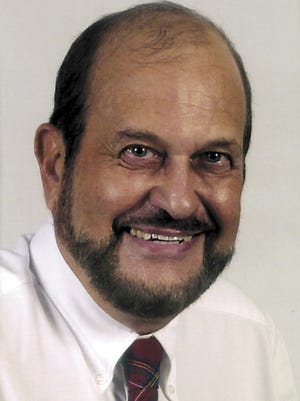

On some levels, it’s sensible for the University of California’s health system, including famed hospitals like UCLA, UC San Francisco and UC San Diego, to link with the Dignity Health group of hospitals and clinics often located in much more isolated and rural locations.
While UC hospitals generally operate in major cities and urban counties, Dignity’s 67 California hospitals and urgent care centers serve both urban and suburban locales including San Jose and Glendale. They also span places as disparate as Mt. Shasta, Santa Cruz and the Inland Empire.
Dignity’s current two-year-old arrangement with UC Health can provide care much closer to home for some patients affiliated with the state-owned hospitals.
The deal also lets Dignity patients access care and consultations with the many world-renowned specialists working at UC’s teaching hospitals. The two systems are also the state’s No. 1 and No. 2 providers of Medi-Cal services for low-income patients.
But there are some limits, mostly imposed by Dignity, owned and operated by an arm of the Roman Catholic Church. Like all Catholic hospitals and clinics, Dignity obeys the dictates of the church’s national conference of bishops.
This means its hospitals observe dictates of the church’s Ethical and Religious Directives for Catholic Health Care Services. Translation: No abortions, unless doctors determine a patient will die without one. It also means a lot less service for gay, lesbian and transgender persons. Hormone treatments for the transgendered cannot happen in a Dignity hospital. The same with surgeries for the transgendered.
This is starting to bother some California officials a lot, so pressure is building to end the affiliation, and that pressure appears justified.
“I could not in good conscience agree to a policy that allows us to continue affiliations with private healthcare operators that limit the delivery of medicine in any way that’s not based on …the best practice of medicine,” UC Board of Regents chairman John Perez told a reporter. Perez, once the first openly gay speaker of the state Assembly, has UC actively considering the future shape of its connections to Dignity and other religiously affiliated medical systems.
Democratic state Sen. Scott Wiener of San Francisco goes further, sponsoring a bill to limit UC’s ability to make deals with hospitals or clinics that put “nonclinical” limits on services they offer. Many Wiener bills on subjects like housing and drug use are perennial failures in the Legislature, but manage to move the state’s agenda even if they die. This one has a solid chance at passage.
As it should. For while Dignity brags on its website that the UC partnership gives “thousands of medical students and residents statewide access to comprehensive clinical training,” that also could mean subtle indoctrination of those same future physicians against giving treatments that many women and others consider essential.
Yes, Dignity’s hospitals and centers sometimes offer more services than UC for children with traumatic injuries and better inpatient psychiatric care for adolescents, but at what cost?
For if UC hospitals can in any way have care they provide influenced by authorities of one religion, who’s to say they won’t someday move toward other religious preferences — like, for instance, Muslim Sharia law? This is a Pandora’s box UC would be wise to slam shut while the arrangement is still young and not solidly ingrained in its habits.
Said one UC spokesman, “Our goal in establishing relationships with other health care organizations is to extend the reach of the university’s high-quality care and expertise.”
That noble idea could also be accomplished if UC set up new clinics in less urban locations than where its hospitals exist. It’s also possible to link up with non-sectarian clinics and urgent care centers, even if no other chain has as many locations and patients as Dignity.
The bottom line: The deal with Dignity brings too many pitfalls for it to be good for UC’s health system or for many of its patients. Let’s end it sooner rather than later.
Email Thomas Elias at tdelias@aol.com.

